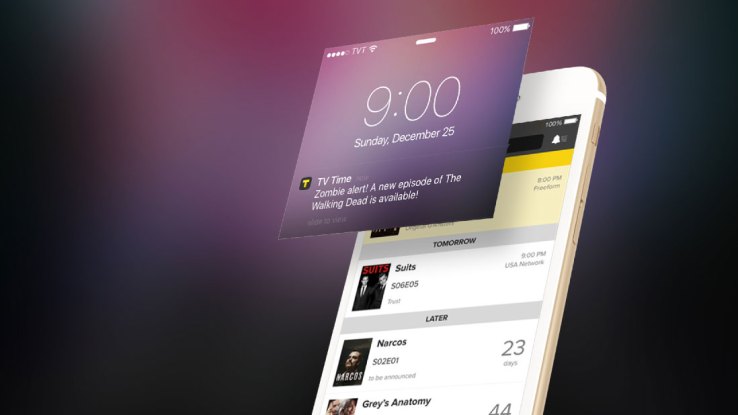
With TV programming now spread out across a variety of services beyond traditional network TV, it can be hard to know what to watch next and what’s popular, given how much great content there is to choose from. An app called TV Time is helping with that, by allowing TV fans to track shows they’re watching, discover new programs, and socialize with fellow fans following each episode. Now the company is doubling down on its ability to help you find your next show with the launch of personalized recommendations.
Your recommendations are based on the app’s understanding of dozens of signals, including things like what shows you watched, which you binged through, those your friends watch, those where you engaged in the show’s community, those you’ve favorited, and more.
You can additionally filter your recommendations by network, status (ended, upcoming, etc.), genre, service where available, and other factors.
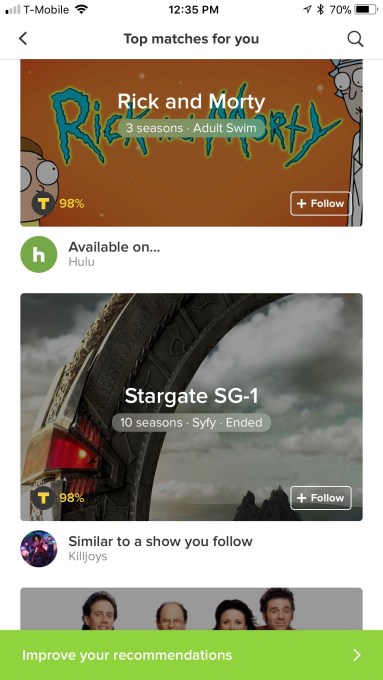
(Above: TV Time identifies me as a sci-fi nerd who has yet to watch Stargate. I know, I know!)
What makes its recommendations unique is that they’re based on your viewing behavior across all of television, not just a single service like Netflix, explains the company.
“There’s an incredible amount of quality TV being made today – some of the budgets are insane – and because all these different platforms are doing it, it becomes more confusing for the consumer to find out where to watch, to remember where they left off, and to remember when the premiere is ,” says TV Time COO Dan Brian. “It’s hard to wrangle it all.”
Similarly, figuring out what to watch next is also difficult because there are so many ways to track what content you like, but none of that data is currently available across platforms. That is, Netflix doesn’t know what you like on Amazon or HBO, and so on.
“We took the 8 billion episodes of TV that had been tracked in the app – episodes that are from every platform that exists,” Brian says. “And because we have that 360 degree view of what people watch, we should be able to make the best recommendations to you as to what to watch next.”
In practice, the recommendation algorithm leaned a bit too hard on picks from TV’s back catalog, I found in testing, and didn’t as heavily take into account favorited shows, as I’d like. But the promise of machine learning is that its recommendations will get better in time, the more it’s used to find and follow new shows.
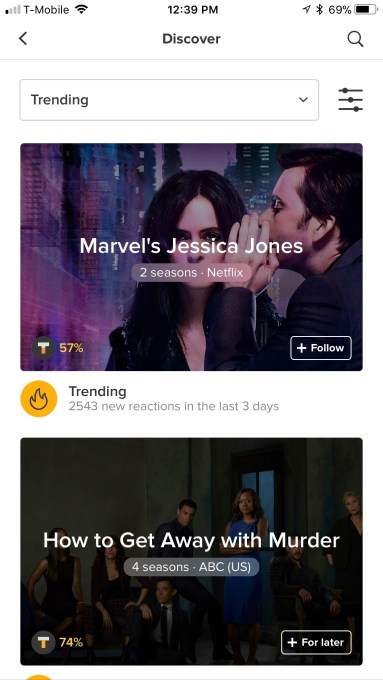
The recommendations feature, which is available in TV Time’s “Discover” section, is the latest addition to an app that has catered more to hard-core TV fans, versus a more casual viewer. But that’s something the company is now trying to change as it grows.
TV Time began its life as WhipClip, a source for a legal collection of GIFs from favorite shows, before pivoting to become a social TV community.
This is an area startups in the past tried to enter, as with GetGlue (acquired by i.TV half a decade ago), or social TV pioneer Miso, which shut down in 2014. Arguably, these companies arrived too soon – before the cord-cutting trend gave way to dozens of streaming services, and a la carte options galore for building out your own personal bundle of TV.
While in the past, all of America seemingly watched the most popular TV shows together at the same time, finding someone today who likes a show you watch is less common. And to find them watching it at the same time as you are is even rarer, thanks to the end of “appointment television,” for almost everything except for a small number of breakthrough hits like “Game of Thrones.”
That makes an app like TV Time feel like a place where you can really find “your people” – whether it’s fellow sci-fi lovers, or reality show junkies, or whatever else you’re into.
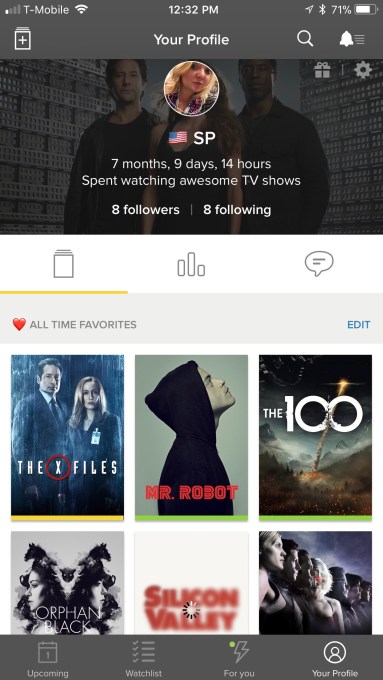
Beyond its new recommendations, you can use the app to track favorite shows, find out when shows are returning, or discover what’s popular among the community, and more. On your profile, you can set shows as favorites, track your personal TV viewing data, and see how your posts to TV Time’s show communities are doing. You can also follow friends to see what shows people you know are watching.
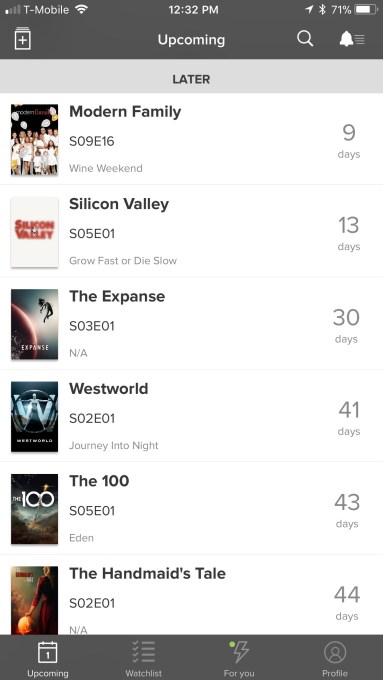
After marking an episode as “watched,” you can then hop into the community to view the reactions, which are shared in the form of GIFs, photos, videos, memes, and more. The app makes meme-building easy, thanks to an included set of screencaps that can be mixed with other content, then shared to the community. You can also record a video reaction – something that’s a popular activity on YouTube.
There’s a surprising amount of community engagement, too.

A show many have a hundred or more reactions posted by fans, many with hundreds of likes. And a buzzy show like “The Walking Dead” may have hundreds of video reactions alone after a new episode premieres.
The company says that there are now more than a million people using the app daily, where they’re able to track any one of over 60,000 shows and more than 8 billion TV episodes. Users check in with TV Time some 45 million times per month, and engage over a half a million times by posting comments, photos, GIFs, videos, and more.
As TV Time improves these recommendations in the weeks ahead, it will also begin to show your “TV Time score” – how well your interests match with a given piece of content – in all the show pages in the app.
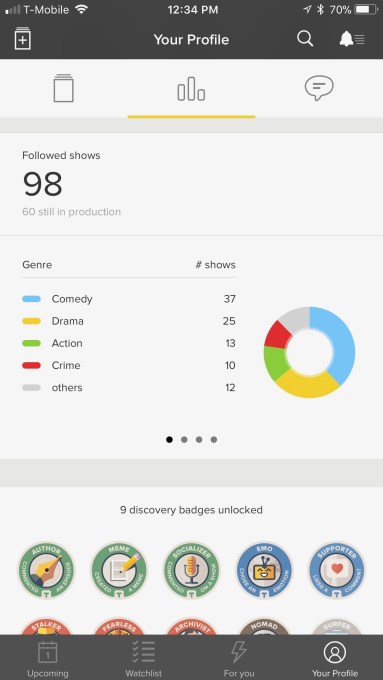
With its newfound ability to make personalized show suggestions, TV Time hopes to attract more casual TV fans, and eventually be able to sell its data on what people are watching to help inform TV producers and networks what to shows to fund next, as well as provide competitive insights, among other things.
“But we’ll never sell individual profiles of people,” Brian stresses. “We’re working with partners on aggregate, anonymized data about what the trends are,” he says.
Today TV Time generates revenue through a premium tier, which has tens of thousands of paying users. But this will likely be dropped in time as its data business scales up.
TV Time is a free download on iOS and Android.

